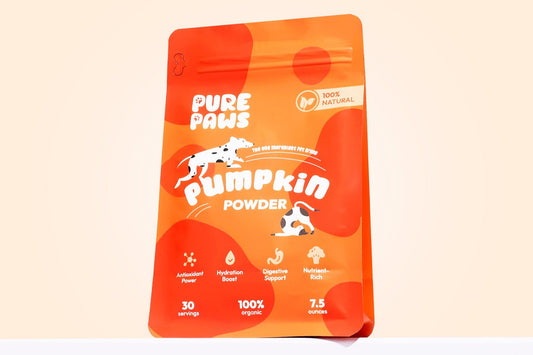
Plants Toxic to Cats and Dogs: What to Avoid & Signs of Poisoning
As a pet parent, you want your furry friends to be safe and healthy, both indoors and outdoors. However, many common plants can be toxic to cats and dogs, leading to serious health issues if ingested. In this guide, we’ll explore which plants to avoid, signs of poisoning in pets, and what to do if your pet comes into contact with a toxic plant.
Common Toxic Plants to Avoid
Here are some of the most common plants that can be harmful to your pets:
-
Lilies (Lilium species)
- Toxic to: Cats
- Effects: Even small amounts can cause kidney failure in cats. Symptoms include vomiting, lethargy, and loss of appetite.
-
Sago Palm (Cycas revoluta)
- Toxic to: Dogs and Cats
- Effects: All parts of this plant are toxic, especially the seeds. Ingestion can lead to liver failure, vomiting, and seizures.
-
Aloe Vera
- Toxic to: Dogs and Cats
- Effects: While beneficial for humans, aloe vera can cause vomiting, diarrhea, and lethargy in pets.
-
Oleander (Nerium oleander)
- Toxic to: Dogs and Cats
- Effects: This plant can cause severe heart problems, vomiting, and even death if ingested.
-
Tulips (Tulipa species)
- Toxic to: Dogs and Cats
- Effects: The bulbs are particularly dangerous, causing stomach upset, drooling, and loss of appetite.
-
Azaleas and Rhododendrons (Rhododendron species)
- Toxic to: Dogs and Cats
- Effects: Ingestion can lead to vomiting, drooling, and potentially fatal heart arrhythmias.
-
Daffodils (Narcissus species)
- Toxic to: Dogs and Cats
- Effects: Ingestion can cause severe vomiting, diarrhea, and abdominal pain.
-
Dieffenbachia (Dumb Cane)
- Toxic to: Dogs and Cats
- Effects: Causes irritation of the mouth and throat, excessive drooling, and difficulty swallowing.
-
English Ivy (Hedera helix)
- Toxic to: Dogs and Cats
- Effects: Can cause vomiting, abdominal pain, and hypersalivation.
-
Philodendron
- Toxic to: Dogs and Cats
- Effects: Causes oral irritation, drooling, and difficulty swallowing.
Signs of Plant Poisoning in Pets
Knowing the symptoms of plant poisoning can help you act quickly if your pet is exposed to a toxic plant. Common signs include:
- Gastrointestinal Issues: Vomiting, diarrhea, and drooling are common symptoms when pets ingest toxic plants.
- Lethargy: If your pet seems unusually tired or weak, it could be a sign of poisoning.
- Loss of Appetite: A sudden refusal to eat can indicate that something is wrong.
- Difficulty Breathing: Some toxic plants can cause respiratory issues.
- Seizures or Tremors: Severe poisoning can lead to neurological symptoms like seizures.
- Oral Irritation: Pawing at the mouth, excessive drooling, or difficulty swallowing can indicate that your pet has chewed on a toxic plant.
- Abdominal Pain: Pets may exhibit signs of discomfort, such as whining, restlessness, or bloating.
What to Do If Your Pet Is Poisoned
If you suspect that your pet has ingested a toxic plant, it’s important to act quickly:
-
Remove Access: Take your pet away from the plant immediately to prevent further ingestion.
-
Check for Symptoms: Monitor your pet for any signs of poisoning. Even if symptoms are mild, it's better to be cautious.
-
Contact Your Vet or an Emergency Animal Clinic: Call your veterinarian or a pet poison helpline immediately. Provide them with details about the plant and the symptoms your pet is showing.
-
Do Not Induce Vomiting Without Guidance: Some toxins can cause more harm if vomited up. Always follow your vet’s instructions on whether to induce vomiting.
-
Bring a Sample of the Plant: If possible, take a sample of the plant or a picture to help the vet identify the toxin.
Preventing Plant Poisoning
The best way to keep your pets safe is to ensure that toxic plants are not accessible to them. Here are some tips:
- Research Plants Before Buying: Always check if a plant is toxic to pets before bringing it into your home or garden.
- Place Plants Out of Reach: If you have toxic plants, make sure they are in areas where your pets can’t reach them.
- Create a Pet-Safe Garden: Opt for pet-friendly plants like basil, parsley, and rosemary in your garden and home.
Conclusion: Keep Your Pets Safe
While plants can enhance the beauty of your home and garden, it’s crucial to be aware of those that pose risks to your pets. By knowing which plants to avoid and being vigilant about signs of poisoning, you can keep your furry friends safe and healthy. Always consult your vet if you’re unsure about a plant’s safety or if you suspect your pet has ingested something harmful.
Remember, at Pure Paws, we believe in natural, safe solutions for pet health—just like our one-ingredient goat milk powder. It's pure, simple, and packed with nutrients to support your pet's well-being, free from the risks posed by toxic additives or ingredients.








